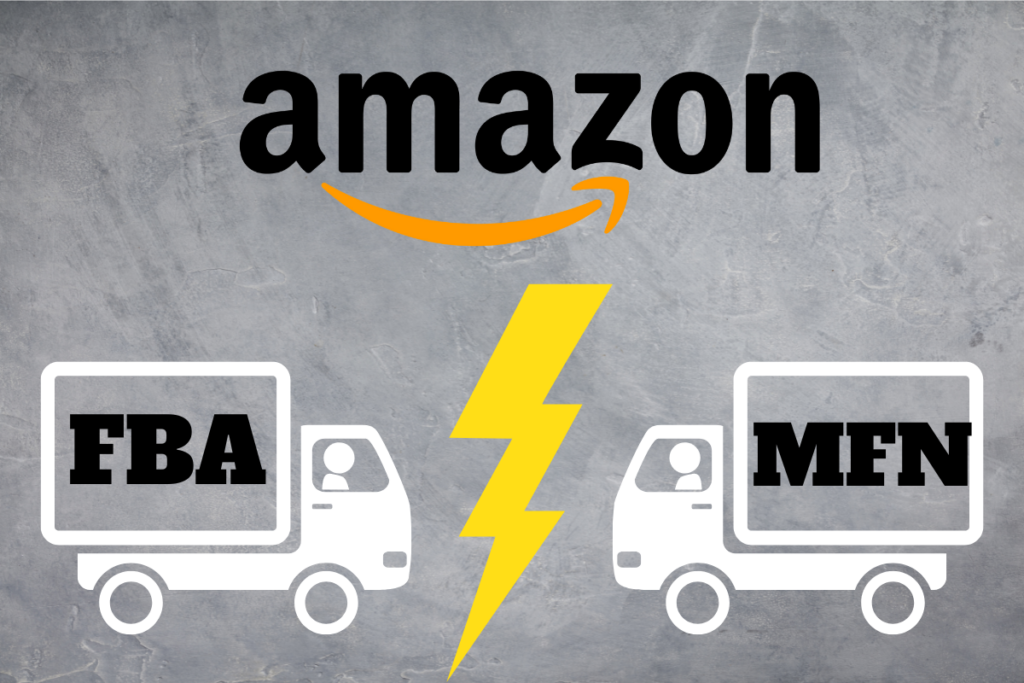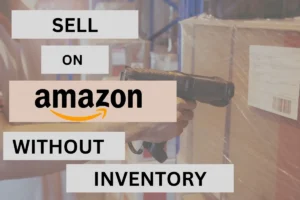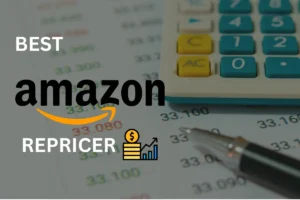Are you an Amazon seller trying to decide between using Fulfilled by Amazon (FBA) or the Merchant Fulfilled Network (MFN) for your products? This choice, seemingly straightforward, has profound implications on cost, control, and customer experience, hence, understanding the nuances of these two options becomes paramount for success.
FBA, as the saying goes, is the ‘whole package.’ With FBA, Amazon takes care of all the logistics for you – storage, shipping, and even customer service – essentially lifting the burden of product fulfillment off you.
This means less time and effort on your part, allowing you to focus on other aspects of your business. Plus, FBA products are eligible for Amazon Prime, which can greatly boost your sales and visibility, not to mention the ability to fulfill orders from other sales channels.
On the other hand, MFN gives you more control over your inventory and lower fees. You can add personal touches to your packaging and offer faster shipping times for nearby inventory.
However, you have to handle your own shipping and customer service, which can be time-consuming and expensive. Additionally, MFN products are not eligible for Amazon Prime, which may limit your visibility and sales opportunities.
So, whether you value control over your inventory, cost considerations, or the importance of Amazon Prime eligibility, we will help you weigh the pros and cons of FBA and MFN so you can decide which is best for your business. Let’s dive in!
Key Takeaways
- FBA (Fulfillment by Amazon) saves time and effort for sellers as Amazon handles storage, shipping, and customer service.
- FBA products are eligible for Amazon Prime, which increases sales and visibility for sellers.
- FBA can fulfill orders from other sales channels, expanding the seller’s reach and increasing sales opportunities.
- MFN (Merchant Fulfilled Network) allows sellers to retain control over inventory, customize packaging, and branding, and has lower fees compared to FBA. However, it requires sellers to handle their own shipping and customer service, and may have longer shipping times, especially for distant customers.
What is FBA?
Fulfillment by Amazon (FBA) is an all-encompassing program where sellers can store their products in Amazon’s fulfillment centers. Once an order is placed, Amazon takes care of the picking, packing, and shipping process, as well as customer service and returns.
FBA offers numerous benefits to any Amazon seller, including access to Amazon’s world-class fulfillment service, Prime badge eligibility, and access to Prime buyers. By utilizing FBA, sellers can leverage Amazon’s extensive fulfillment network, which includes distribution centers strategically located across the globe.
This fulfillment method not only simplifies the selling process for sellers but also enhances the overall customer experience by ensuring fast delivery times, reliable shipping, and exceptional customer service.
Pros of Using FBA
- Storage Solutions: With FBA, sellers have access to Amazon’s vast network of warehouses, allowing them to scale their business without the headache of storage limitations.
- Amazon Prime Eligibility: One of the most significant advantages, products fulfilled by Amazon automatically qualify for Amazon Prime. This translates to faster shipping for customers and a competitive edge for sellers.
- Handled Customer Service and Returns by Amazon: Amazon’s world-class customer service team manages inquiries and product returns, providing a consistent experience for customers.
- Potential for Higher Visibility in Amazon’s Buy Box: Being an FBA seller can increase your chances of winning the coveted Buy Box due to the trust and reliability associated with Amazon-handled logistics.
Cons of Using FBA
- Storage Fees: While the storage solutions are vast, they aren’t free. Especially during peak seasons, long-term inventory storage fees can quickly add up. And it doesn’t stop at storage fees. There are other fees associated with using FBA, such as fulfillment fees, which can eat into your profit margins, especially if you are selling low-priced items.
- Potential for Commingling Inventory Issues: If you don’t opt for stickered inventory, your products might get mixed with items from other sellers, potentially leading to quality control issues.
- Limited Control Over Inventory Handling and Shipping: With FBA, you entrust Amazon with your stock, which means you’re at the mercy of their processes and potential errors. Also, FBA can be tricky for sellers with unique or fragile items.
What is MFN?
Merchant Fulfilled Network (MFN) is a fulfillment option offered by Amazon that allows sellers to handle the entire shipping and customer service process themselves.
It is also referred to as Fulfillment by Merchant (FBM) and unlike FBA, where sellers send their inventory to Amazon’s fulfillment centers and Amazon handles storage, packaging, shipping, and customer service, with MFN, sellers take on these responsibilities directly.
When using MFN/Amazon FBM, sellers are required to store their inventory in their own facilities or use third-party fulfillment centers. They must package and ship the products to customers, ensuring timely delivery and professional packaging.
Additionally, sellers are responsible for handling customer inquiries and providing satisfactory customer service. This includes addressing any issues, inquiries, or complaints promptly and professionally.
One of the primary differences between MFN and FBA is that with MFN, sellers have full control over the fulfillment process. They can choose their own packaging materials, shipping carriers, and shipping costs.
This level of control can be advantageous for sellers who have specific brand requirements or who want to maintain close relationships with customers.
Pros of Using MFN
- Direct Control Over Shipping and Handling: This approach gives you the autonomy to decide how you want to ship a product, when, and through which courier service.
- Avoidance of FBA Storage Fees: The MFN framework is an attractive option in this regard because you do not have to worry about monthly storage fees and accumulating costs of storing items in Amazon’s warehouses, especially if your items are large or slow-moving.
- Ability to Offer Unique Shipping Promotions: With control over your shipping, you can introduce specific promotions or bundled shipping deals to attract customers.
Cons of Using MFN
- Responsibility for Customer Service and Returns: With great power comes great responsibility. Handling queries, concerns, and returns are now your domain.
- Potentially Harder to Win the Amazon Buy Box: Without the Prime badge and the trusted delivery system that comes with FBA, securing the Buy Box might be a tad more challenging.
- Need to Handle Storage and Logistics on Your Own: The logistics puzzle is yours to solve. From finding warehousing solutions to managing inventory, it’s all in your court.
FBA vs. MFN: The Comparative Analysis
Now that we’ve unpacked the individual worlds of FBA and MFN (remember, MFN and FBM are essentially twins with different names!), it’s time to pit them against each other in a face-to-face comparison. Which one takes the trophy home for your business? Let’s weigh in!
Speed of Delivery
- FBA: With the power of Amazon Prime, products fly off the shelves and onto doorsteps with impressive speed. It’s Amazon’s promise of quick deliveries that has won the hearts of millions.
- MFN: The delivery speed varies based on your logistics and the courier service you use. While you might not be able to match Prime’s 2-day delivery, with the right strategy, you can still offer competitive shipping times.
Cost Implications
- FBA: The convenience of FBA comes with associated costs. Storage fees, especially for long-term inventory, and fulfillment fees can add up, affecting your bottom line.
- MFN: You save on Amazon’s storage fees, but you’ll have to consider costs associated with your storage solutions, shipping, packaging, and potentially more personnel to manage the process.
Inventory Control
- FBA: Once your stock is in Amazon’s warehouse, you have limited control. This can lead to potential commingling issues or concerns about how Amazon handles your inventory.
- MFN: You maintain full control, making it easier to manage stock, ensure product quality, and even run promotions based on inventory levels.
Customer Service and Returns
- FBA: Amazon takes the lead, providing customers with the familiar and trusted return and service process they are used to.
- MFN: This is your arena, allowing you to build direct relationships with customers. However, it also means addressing concerns, managing returns, and ensuring satisfaction falls on your shoulders.
Flexibility
- FBA: With Amazon handling most of the process, you have more flexibility to focus on other areas of your business.
- MFN: More control means more responsibility. While you have the flexibility to change processes, you also need to be hands-on in managing daily operations.
The tug-of-war between FBA and MFN/FBM doesn’t have a one-size-fits-all winner. It’s all about aligning with your business goals, capacity, and the experience you want to offer your customers. By understanding the intricacies of each method, you’re well-equipped to make a strategic choice, optimizing both profits and customer satisfaction.
Real-world Scenarios: When to Choose FBA or MFN
The vast world of Amazon selling is not black and white. Depending on specific scenarios and business objectives, one method might outshine the other. Let’s walk through some situations to understand which shoe fits best and when.
Scenario 1: Seasonal Products
- FBA: If you’re selling items that peak during specific times, like holiday decorations or summer inflatables, FBA can be a boon. The rapid Prime shipping option can cater to last-minute shoppers and meet the high demand swiftly.
- MFN/FBM: For off-peak seasons, storing these items can become costly in FBA due to long-term storage fees. Amazon FBM provides flexibility in handling and storing seasonal inventory without incurring excessive fees.
Scenario 2: High-Value, Low Volume Items
- FBA: These items might incur higher storage fees in FBA, especially if they don’t move quickly. But the Prime badge could enhance the product’s perceived value, potentially driving more sales.
- MFN/FBM: With MFN, you can store these items without the constant ticking of Amazon’s storage fee clock. Additionally, you maintain tighter control over handling, ensuring the product’s safety and quality.
Scenario 3: Fast-Moving Consumer Goods (FMCG)
- FBA: For items that fly off the shelves, like daily essentials or trending products, FBA can be a lifesaver. Quick restocking, swift deliveries, and Amazon’s customer service streamline the process.
- MFN/FBM: It can be a logistical challenge to keep up with the high demand and consistent shipping requirements for FMCGs. However, if you have a robust fulfillment system in place, MFN gives you direct control over the sales rhythm.
Scenario 4: Unique, Handmade, or Personalized Products
- FBA: Personalizing products or ensuring each item meets specific quality checks can be a challenge with FBA due to the hands-off approach.
- MFN/FBM: MFN shines here, allowing sellers to maintain a personal touch, ensuring each product meets standards, and offering customization as needed.
Frequently Asked Questions
How does FBA handle returns and refunds for sellers?
FBA handles customer returns and refunds for sellers by providing a hassle-free process. You simply contact Amazon, they handle the return shipping and refund process, ensuring a quick resolution. It saves you time and effort, allowing you to focus on other aspects of your business.
Can sellers use FBA for international shipping?
Yes, sellers can use FBA for international shipping. Amazon’s FBA program allows sellers to store their inventory in Amazon’s warehouses and have it shipped to customers worldwide, expanding their reach and increasing sales opportunities.
Are there any restrictions on the types of products that can be fulfilled by FBA?
Yes, there are some restrictions on the types of products that can be fulfilled by FBA. It’s like having certain guidelines to follow, ensuring that only suitable items are stored and shipped by Amazon.
How does FBA handle inventory storage and management for sellers?
FBA handles inventory storage and management for sellers. They take care of storing and shipping products, ensuring timely delivery and handling customer service. This saves time and effort for sellers.
What are the requirements for sellers to be eligible for multi-channel fulfillment with FBA?
To be eligible for multi-channel fulfillment with FBA, sellers need to have their products enrolled in the FBA program. This allows them to fulfill orders from other sales channels, expanding their reach and increasing sales opportunities.






